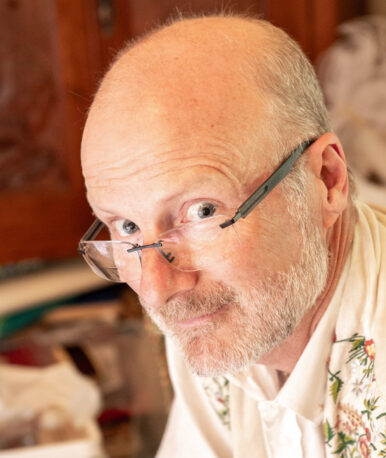I’m Rod Laird and you should feel free to reach out to me with feedback and questions about the material on this site. My career arc has been amusingly circular, starting in research (for the first cochlear implant) and then clinical practice in the biomedical engineering domain. My trajectory then unexpectedly took me into the commercial problem solving domain, with a rigorous apprenticeship in McKinsey & Co leading ultimately to partnership there – and after some global peregrinations – at what became Accenture.
It was with no little surprise and pleasure that in the latter stages of this journey, I found myself again working closely with Cochlear Pty Ltd, the Hearing Health community and many parts of the tertiary sector.
In this latter phase, I became deeply involved with aligning tertiary research with the real-world demands of industry partners and the broader community. Along the way, working with some wonderful people, we managed to mobilise several hundred million dollars in funding that enabled an industry/academy collaboration that has significantly and positively transformed the hearing health sector.

Over the last 15 years I have on a pro bono basis worked closely with academic leadership and front-line research teams to understand their challenges and help them deliver great outcomes. I am privileged continue to work with wonderful teams to help them maximise the real-world impact of their cutting edge industry research.
Through a combination of sweat and serendipity, my unusual professional trajectory has given me a deep understanding of micro-economics and the dynamics of competitive markets. And while coming to the challenges of real-world problem-solving with a technocratic mindset, I discovered that it is people and the architecture of organisations, their cultures and capabilities, that are the “secret ingredient” in delivering great outcomes.
More specifically, I was confronted by the fact that even modest insights, if well implemented, can deliver more impact than the most brilliant – if for the latter, their full potential is in fact “lost in translation”. i.e. some combination of being not understood and not pragmatically implementable.
The foundation of effective real-world problem-solving is a tight collaboration between all the problem’s stakeholders, requiring the skills to effectively align and harness very different different perspectives, knowledge and capabilities – focusing continuously and rigorously on maximising real-world impact. Beyond the campus, the focus on delivering high value, pragmatically implementable outcomes can be taken for granted. This is not the case in the academic sector. My work in the sector continues with research teams who want to build competitive transformational research capabilities. You can access video training material that underpins this effort through the link to Value Driven Problem Solving tab in site menu.
The 3IQ survey distills the essence of the conversations that are essential between the stakeholders of industry research, for there to be any chance of the outcomes genuinely “Delivering Delightful Impact”. Those conversations inevitably will highlight a host of issues – some of which are introduced in the above video and a related short paper that complements it and which you can also download.
There are a number of closely related reasons that have led me to contribute so much of my time in working with the academic community over such a period:
- my experience, with industry and organisations across many sectors and parts of the world, gives me a keen insight on what it takes to tackle “wicked problems” with diverse teams to deliver great impact. Indeed, a number of my formal global roles in the commercial research domain focused on understanding and codifying the best practices required to do so consistently.
- I see the skills needed to do so – and the culture to encourage an impact focus – are not evident in the Australian tertiary sector.
- in recognising that academia and government and commercial enterprises are in many ways “different worlds” – I have invested a great deal of time and effort in understanding both the significant and subtle differences – and the vast range of underlying commonalities
- I see large numbers of truly wonderful people – at all stages of their academic careers – whose talent potential, in the context of their current and future career trajectories, is woefully untapped. Those aspiring to academic careers based on industry research, post-graduates and undergraduates, whose future success will depend on the ability to lead high impact collaborative real-world problem-solving – are not provided with the skills and support they need to thrive.
This is a broader challenge for the sector – and an imperative to address for it to deliver the scale of impact and the skilled graduates all Australians – industry, taxpayers and students – both should expect and deserve. The three question survey is truly the “magic key” to unlocking the conversations that are needed to ultimately deliver that impact.
The sector, today, provides little incentive to ask the 3IQ’s obvious, potent questions – despite the cost to its many stakeholders of failing to do so. I hope the simply ideas outlined here – and the linked resources – catalyse conversations amongst them and you. Industry should be demanding this feedback – and ultimately its publication as a basis for evaluating research partners. Smart research teams that want to move onto a much more effective impact trajectory on their own – and truly achieve delightful outcomes for all their stakeholders – will of course adopt the trivially easy to implement 3IQ survey. They will also leverage the proven-effective tools and techniques outlined in the video training material. As they begin to consistently delight their industry partners with great outcomes – their competitors better look out!
In closing, a word of thanks and acknowledgement to my many friends and colleagues in both academia and industry who have worked with me, sharing their insights and experience – and good humour – over the decade that has led to this simple proposal. Thank you all; you know who you are!